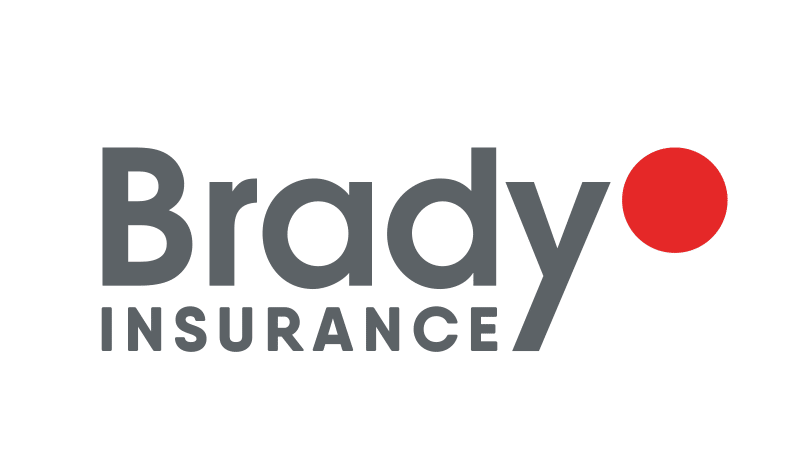
The following information was prepared by Brady Insurance who offer a discount to Performing Arts Forum members. Contact: Fiona McClean fmcclean@bradyinsurance.ie
Public Liability
Public Liability is an essential cover for anyone who is performing in a venue or a public place. Venues also require this cover. The cover affords protection to you for any injuries that have occurred to any member of the public that is attending your performance or venue due to your negligence. The cover will react to any legal proceedings that are brought against you and cover the cost of any settlements or legal costs involved in any such action. The limit of indemnity which is usually required by venues or local authorities is € 6.5m
Employers Liability
Employers Liability Cover is a cover that essentially covers any employee, volunteer, person under apprenticeship, person under work placement, students under work experience and any person that is under the direct control & supervision of your company. The cover will offer cover for any injuries or illnesses that occur while the person is in the course of your employment. Like with Public Liability, any settlements and legal costs will be covered under this section of cover.
In the case of employees for a theatre company, where the actors or staff are working on a volunteer basis or the production is on a profit share basis, they should also be treated as employees, even though there is no wage or fee being exchanged. You are still responsible for their safety. The industry standard limit of indemnity is €13m.
Buildings Cover
This is a cover that would be specific to members who are venues rather than touring theatre companies but of course not exclusive. This provides cover for the physical structure of the building itself. The cover will usually extend to cover any external buildings owned by you and would also cover the likes of external walls and fences.
When looking to insure your property you should always ensure that you are insuring it for the correct rebuild value and this should include, costs of site clearance, solicitors, and architects’ fees. This would be the most important part of insuring your property. Failure to insure your building correctly would result in an “average clause” being applied to any claims that might occur and the full value of your claim not being received. This is of particular concern at present given the increase in cost of building materials and inflation.
**Average Clause Definition – According to the average clause in an insurance policy, the insurance company will only pay for the ratable proportion of the loss. The average clause applies only when the sum insured is less than the actual value of the goods or the property.
Contents Cover
This section offers cover for the protection of your contents, such as office contents. Items such as “Tenants Improvements” and “Landlords Contents” can also be included under this section of cover. Again, insuring items for the correct value is very important. High Valued items should be specifically insured and mentioned by name and value on your policy.
Computers Cover
This section offers cover for computer equipment within your office, which sometimes can be of high value. If your computer or laptop equipment leaves the office, you should always ensure that they are covered correctly. Value wise and location. If you are travelling to Europe on tour, does your policy cover your equipment while you are abroad? Much like high value equipment, these items need to be specified on the policy.
Owned Equipment & Hired in Equipment
Items such as sound & lighting equipment, props, costumes, sets, photographic or videography equipment will always need to be specified on the policy under an “all risks section”. You should also differentiate between “owned” equipment and “hired in” equipment of this nature. In particular for hired in equipment, you should always check with the hire company what exactly your responsibilities are for the equipment once it is in your custody & control.
Any form of Art Works should always be referred, due to the varied nature of the artwork and the particular expert claims handling and knowledge that is required for such items.
Business Interruption
Under Business Interruption cover, you can claim for “lost revenue” or “an increase cost of working” of operating your business as a direct result of an insured claim. A business interruption claim is always put in as part of another claim such as fire or flood. The claim will always relate to lost revenue or incurring an increase in the cost of running your business as a result of a covered claim.
There are various headings under this section of cover and we will be delighted to speak with the members regarding their requirements under this section of cover.
Money Cover
This would be a cover that affords organisations protection against the theft of cash from their premises. A cover that is perhaps more applicable to venue owning members. Perhaps in this day & age of online ticket purchases and card payments, the cover has become less relevant, but if you do have cash on your premises for any length of time, you should always have money cover active on your policy.
Engineering Cover
This cover offers protection for the operation of machinery & plant or equipment. The cover would be specific to venues. Items such as pressure plant, boilers, passenger lifts would be common items you would find under an engineering policy, but in the case of venues it would relate to the workings of the backstage area. The riggings, lighting trusses, lighting bars, ropes and runway tracks among other items can all be covered under this policy.
The covers that are available under this type of policy are: –
Inspection
Under HSA regulation certain items of plant and machinery are required to be inspected and certified as fit for use by an independent and qualified inspector. Equipment found in the backstage area and indeed elsewhere in theatre venues fall under this regulation. Under this section of cover the cost of these statutory inspections are covered by the insurance company.
Sudden & Unforeseen Damage & Breakdown
This policy covers machinery from unexpected damage caused by breakdown and accidental damage and gives the flexibility to insure all of the machinery on the premises or to restrict cover to specific items.
The cost of repair or replacement – the expense involved in repairing or replacing plant installed at, or on, the insured premises, where this is the result of sudden and unforeseen damage and requires immediate action to allow normal working to continue.
Director’s & Officers
Insurance cover is provided for claims arising out of actual or alleged breach of trust, breach of duty, neglect, error, omission, misstatement, libel, slander, breach of warranty of authority and wrongful trading. Furthermore, Director’s & Officers Liability Insurance also protects the value of a director’s personal holding in the company by covering the substantial expense of funding its own defence.
The legal environment for directors and officers in Ireland is becoming increasingly hostile. In recent years, both the government and shareholders have become more willing to bring actions for breach of duty against directors and officers of companies.
As a director or officer of a company, you should consider the following:
- The charities act of 2009 where it defined Charity Trustees as company directors and so they will be treated as company directors of an CLG or charity.
- As a Director or Officer, you act as an agent for the company, and are legally responsible for your actions. You cannot hide behind the veil of incorporation. Directors and Officers personal assets are exposed to claims against them arising out of their business activities.
- Claims can be brought by any party with an interest in the affairs of the company. Directors owe a duty to the company who are ultimately the present and future shareholders. In addition, this is extended to creditors in the event of insolvency.
Legally, the directors of a company and the company itself are separate entities and so may both be defendants, separately or jointly, in any legal action or prosecution.
Directors and officers of companies and other organisations have various duties, responsibilities and powers in connection with their position. Director’s duties are set out in a combination of case law and relevant sections from various statutes and regulations.
Consequently, directors and officers can be held responsible for a range of issues including:
- Fraud
- Negligence
- Health and safety
- Data protection
- Maintaining satisfactory accounts
Directors are often unaware of what their duties are but ignorance is no defence.
Director’s & officers liability insurance claims examples
The following examples highlight the importance of directors & officer’s liability insurance
- Two motorists were killed after a company driver fell asleep whilst driving for a haulage company. The court held that the operations manager should have ensured that his driver adhered to the relevant driving regulations and also that he had failed to keep in close touch with his co-director on these matters. Both directors incurred substantial defence costs before being convicted of corporate manslaughter.
- Although acquitted on criminal charges the director faced a long civil case brought by the liquidator, whilst the Official Receiver simultaneously brought disqualification proceedings. The case centred on false accounting of invoices to a factoring company which had allowed the Company to continue trading whilst insolvent.
- Two directors were held liable for payments made to another director shortly before the company went into liquidation. The creditors of the company successfully argued that they should take precedent over the director and were awarded £800,000. Directors have a fiduciary duty to take the correct course of action and as such should not profit from their position.
Directors Held Responsible For Company Accounts
- All 14 directors of a privately owned business incurred substantial legal fees and were banned following a DTI (UK) investigation into company insolvency. Despite the fact that only two directors ran the business on a day-to-day basis, all 14 were found to be responsible for the books and records not being up to the necessary standards and for a lack of working capital.
Substantial Costs Awarded For Not Acting With Due Care & Diligence
- Three former directors of a company incurred substantial costs after they were fined by The Securities and Futures Authority for their respective roles in an aborted hostile take-over bid. Each director admitted that they had failed to act with due skill, care, and diligence in their dealing with confidential information received in preparation of the hostile bid.
- The director of a business that failed, with losses of £1.5m has been sued by liquidators. The director genuinely believed the firm to be profitable, but the case was still found in the liquidator’s favour, due to the directors negligence in failing to ensure accurate financial records were kept.
Employment Practices Liability
Insurance cover, covering wrongful acts arising from the employment process. The most frequent types of claims covered under such policies include wrongful termination, discrimination, sexual harassment, retaliation and bullying. In addition, the policies cover claims from a variety of other types of inappropriate workplace conduct, including (but not limited to) employment-related: defamation, invasion of privacy, failure to promote, deprivation of a career opportunity, and negligent evaluation. EPL policies are written on a claims-made basis.
A claims made policy is a policy providing coverage that is triggered when a claim is made against the insured during the policy period, regardless of when the wrongful act that gave rise to the claim took place.
Employment Practices Liability Claims Examples
- A company who received funding from a local authority that was used to pay two employees’ wages. When the funding was cut in half, the company could only afford to keep on one employee on and so made the decision to let one of the employees go. The employee that was let go took a case for unfair dismissal against the company. It was found that the company did not follow the correct employment law guidelines when dismissing the person. This case was settled in the favour of the employee and a sum of €26,500 was awarded.
- A company employee alleged that they were subjected to bullying & harassment by their line manager. The employee reported this bullying and harassment to HR & Management. The HR department and Management failed to act on this report of bullying & harassment and eventually the employee was forced to leave their employment. They later took a case against their former employee alleging, Bullying, Harassment and Constructive Dismissal.
- Because the company did not act or act in an appropriate manner regarding the employee’s report, they were found to have been in breach of their duty of care to their employee and failure to provide a safe working environment to their employee. This case was settled in the region of €75,000.
The Civil Time period to bring a claim against an organisation is currently 2 years in Ireland.
In order to purchase a Director’s & Officers insurance policy, you will need to prove to an underwriter that you have the following in place within your company: –
- That your company has not been the subject of an investigation by any official body or institution within the last 5 years.
- There are no current plans to lay off staff or make any redundancies. You will seek legal advice in relation to any future redundancy plans.
- You have not laid off, dismissed or otherwise terminated the employment of any staff in the past 12 months.
- There are no final stage disciplinary procedures or other formal processes which could give rise to the dismissal of any employee currently underway or proposed.
**The above question set is a sample of the questions you would be asked for this policy type. Please note that this list is not exhaustive.


